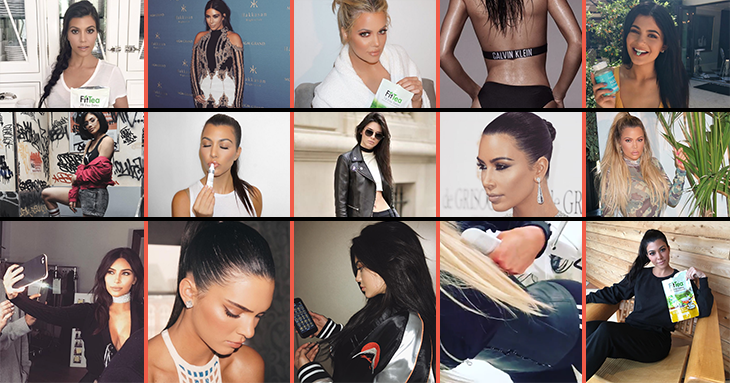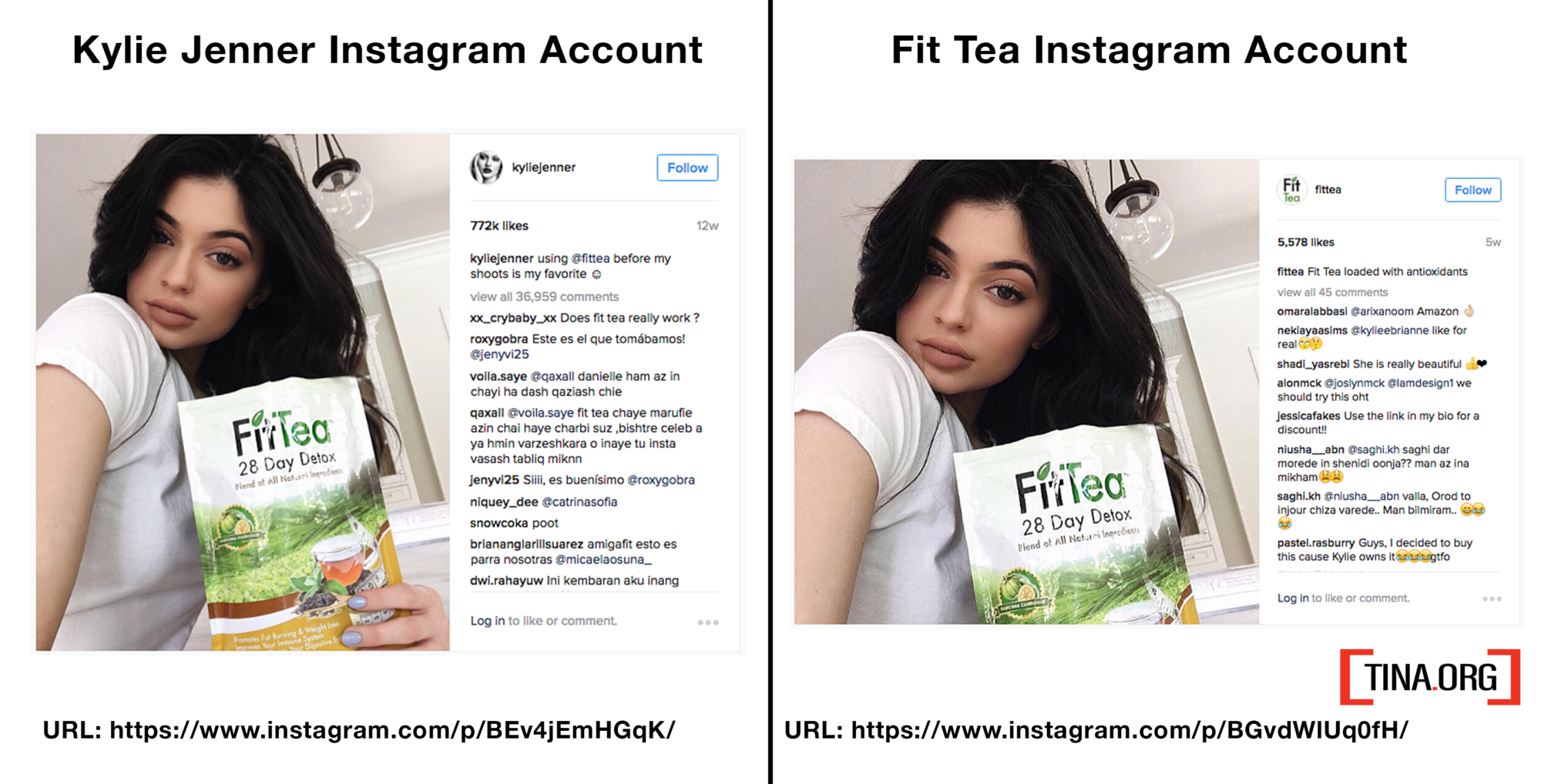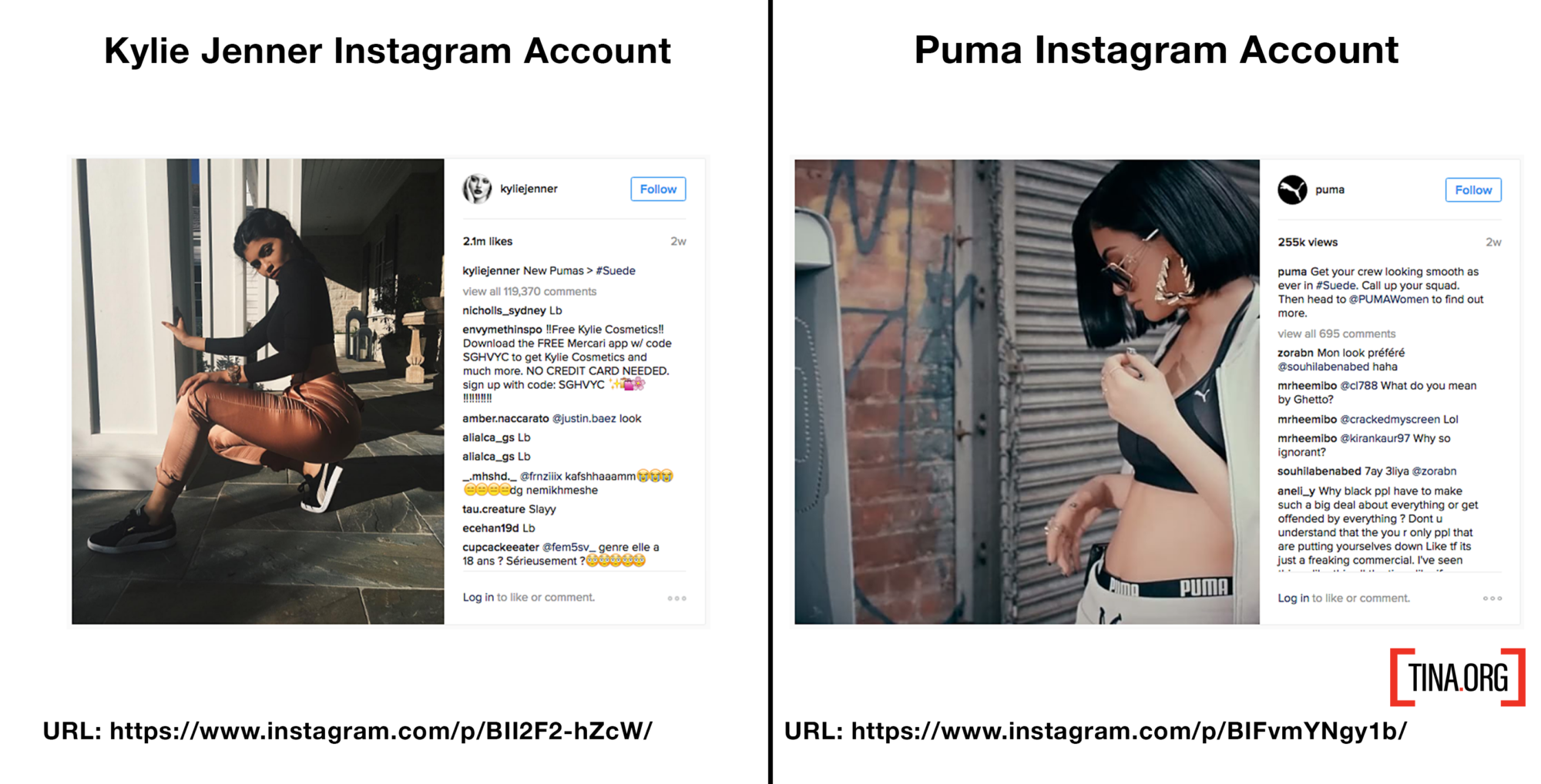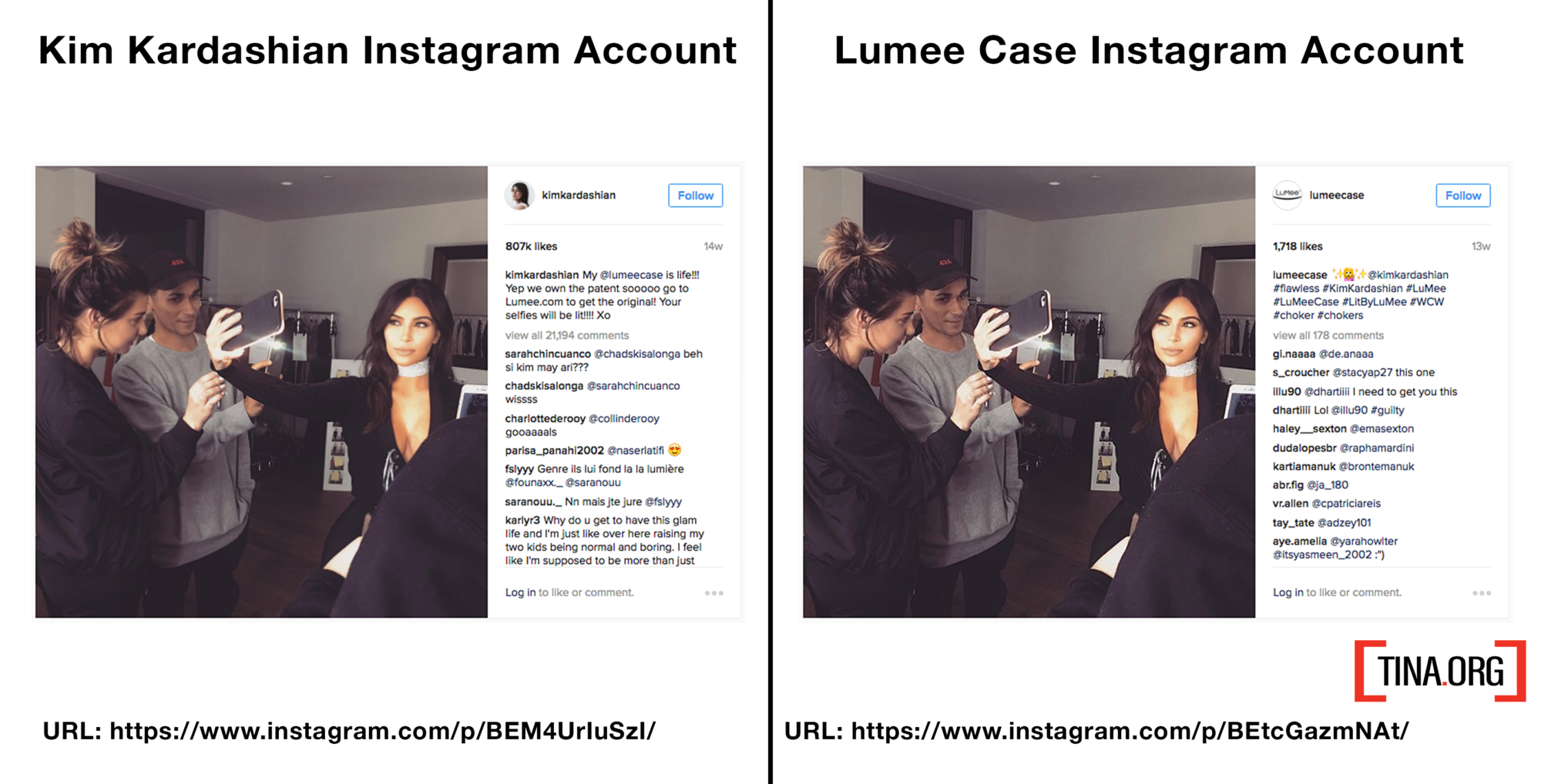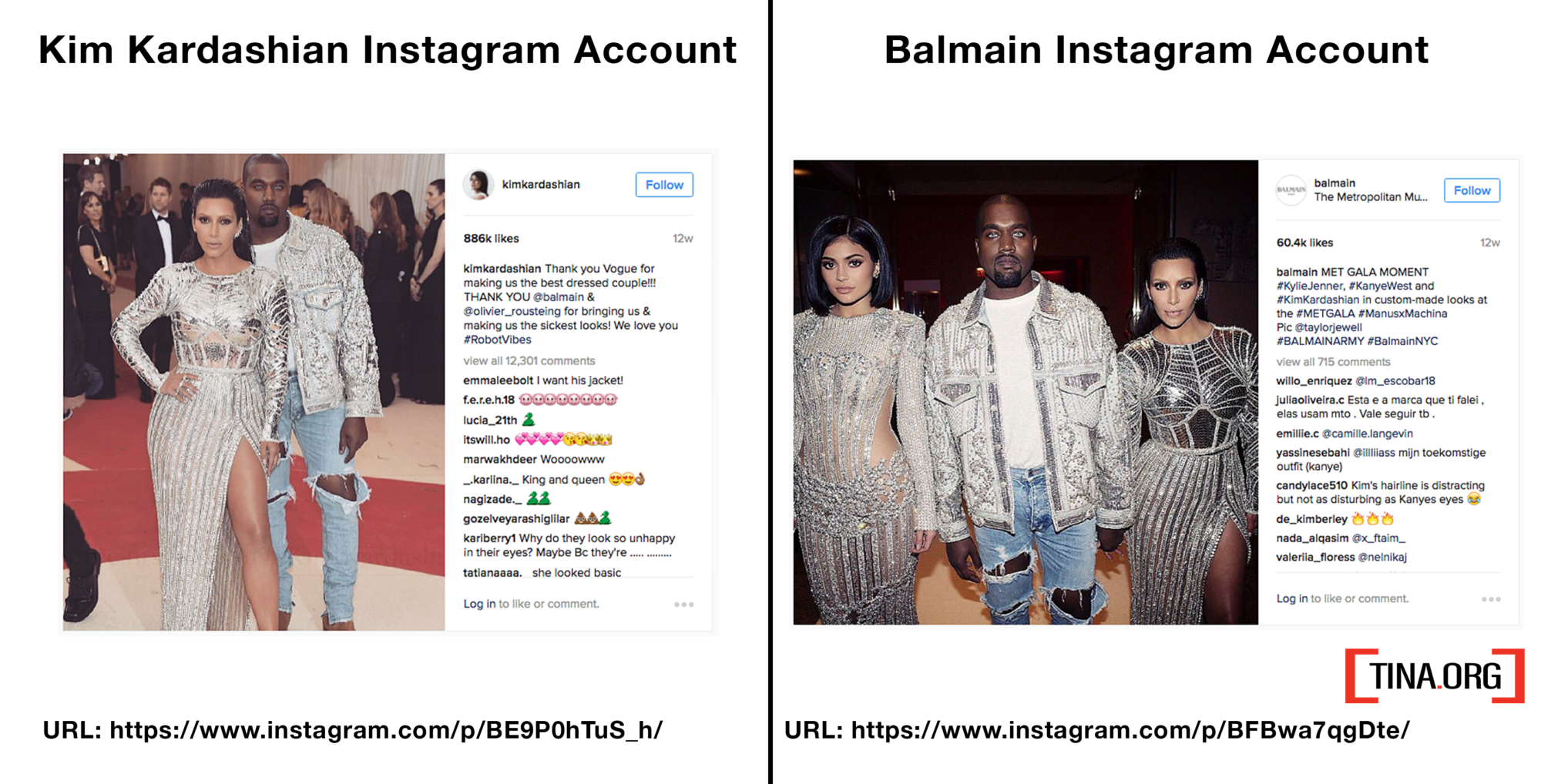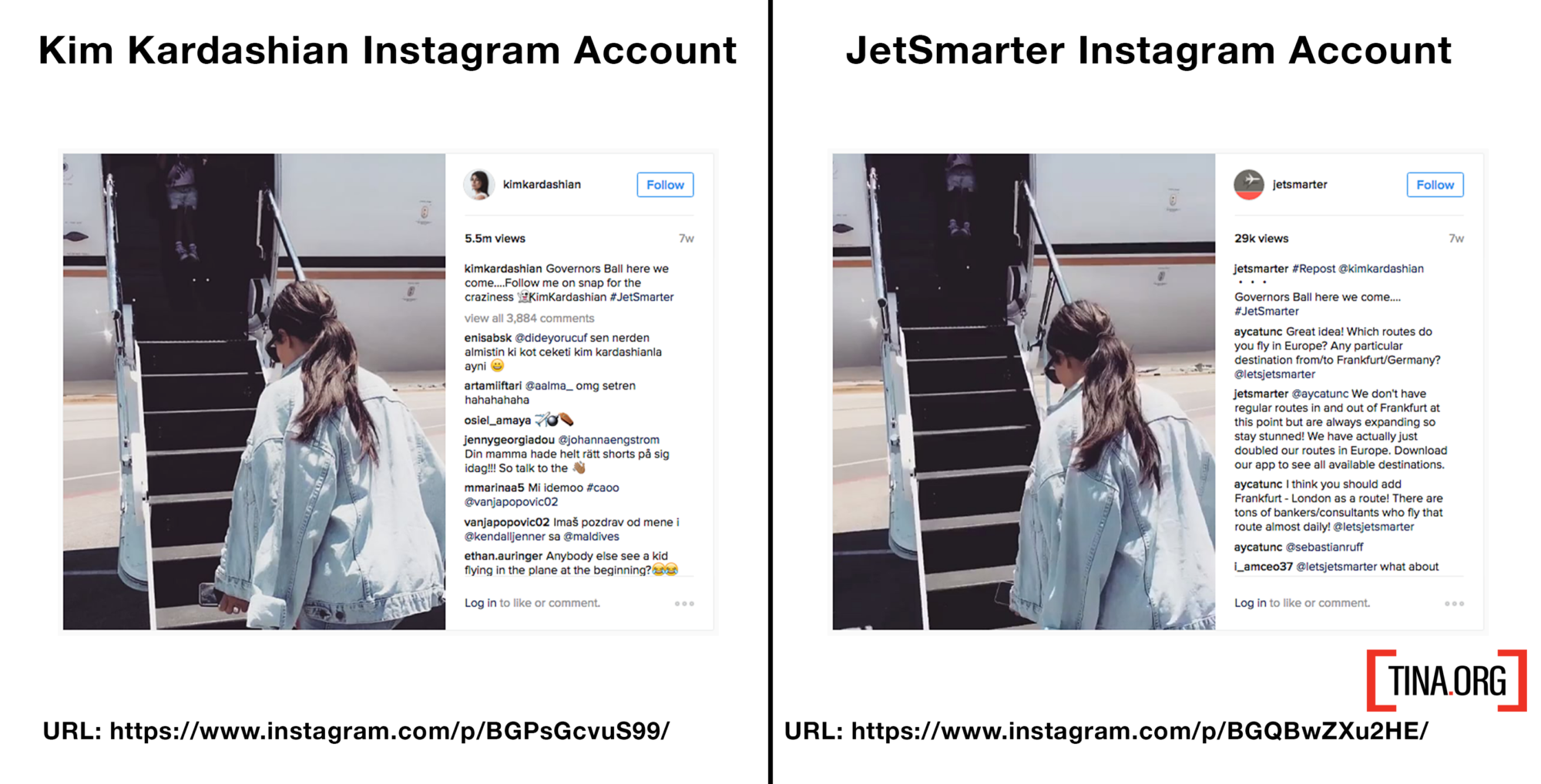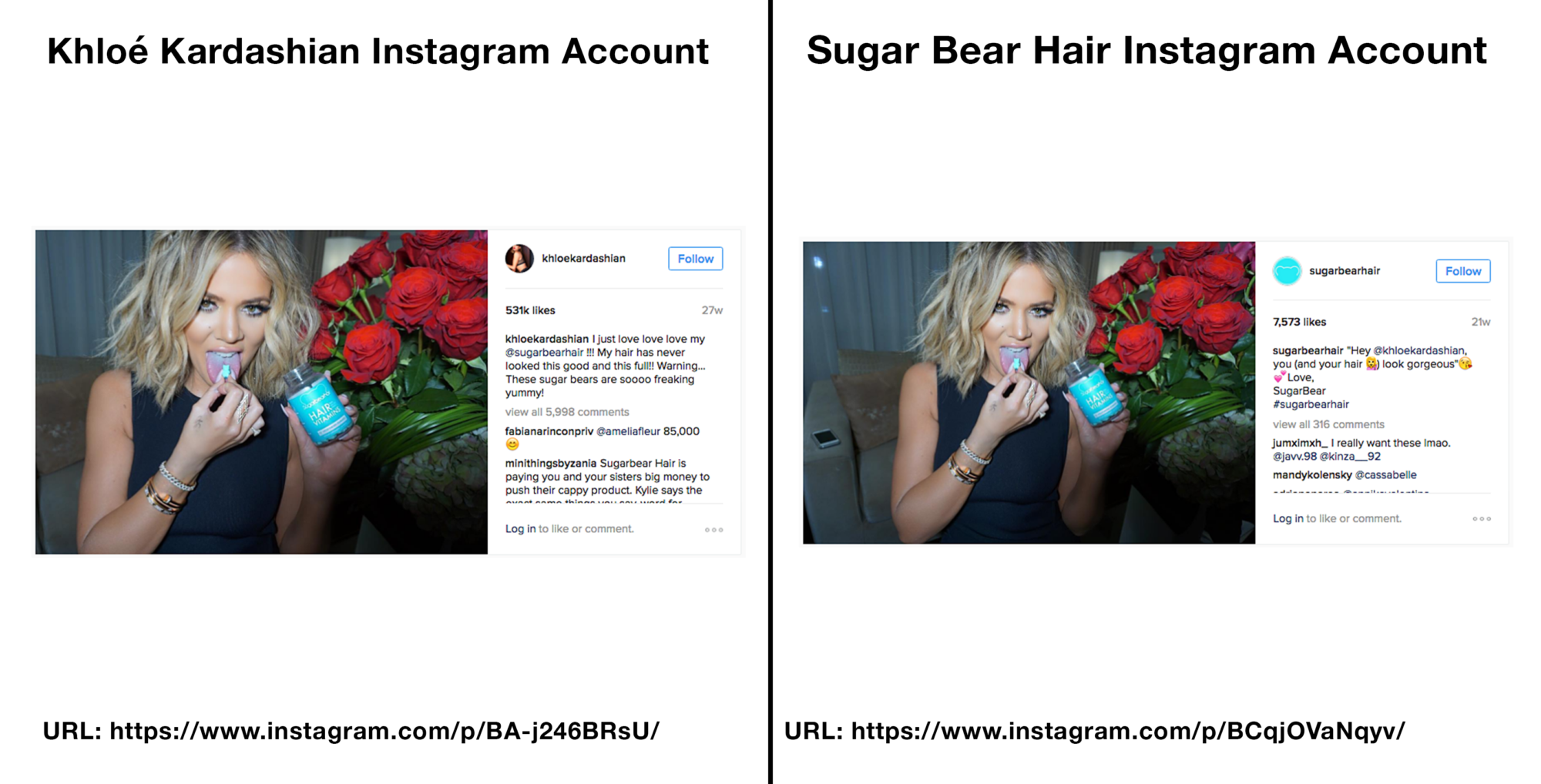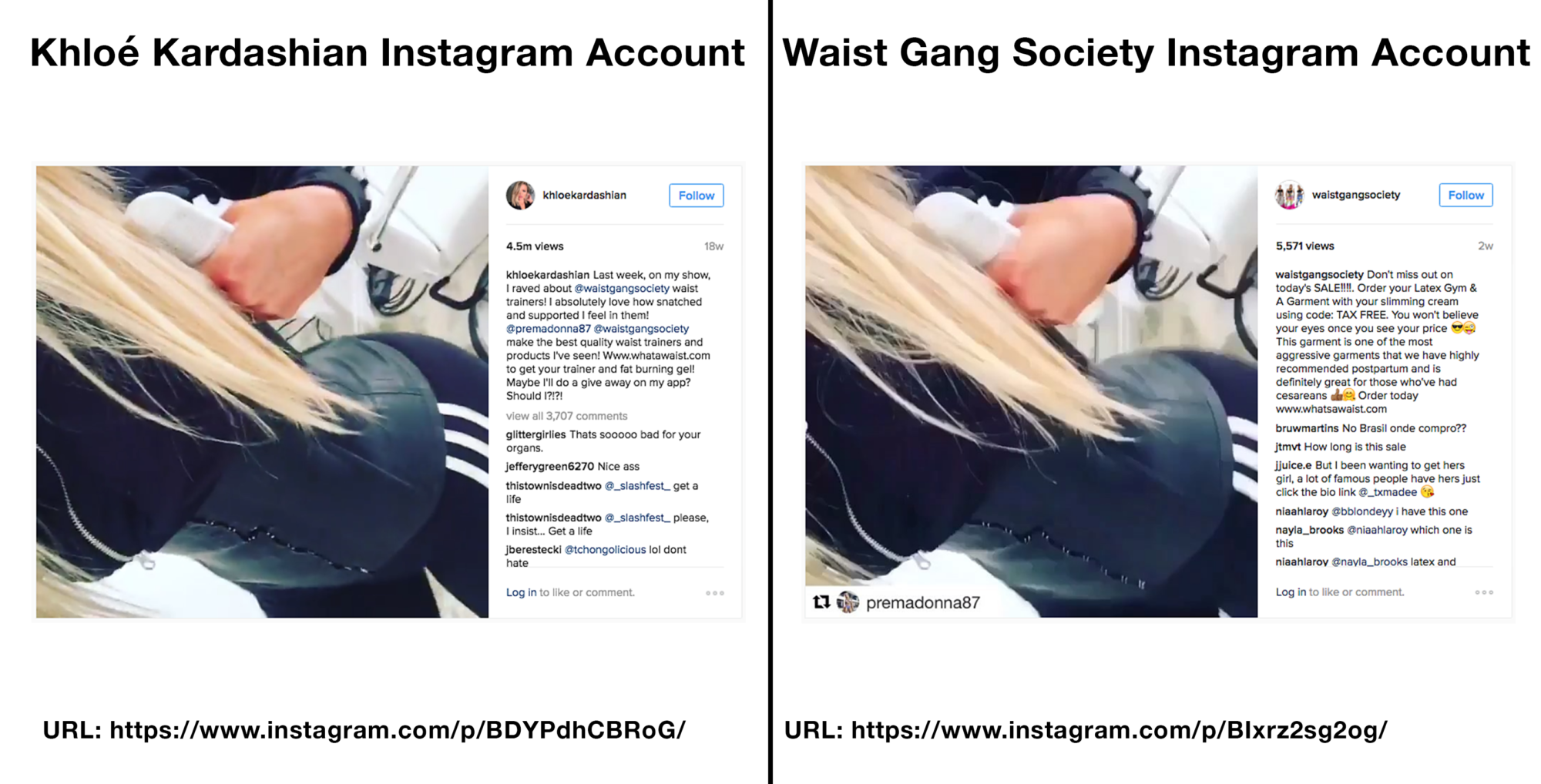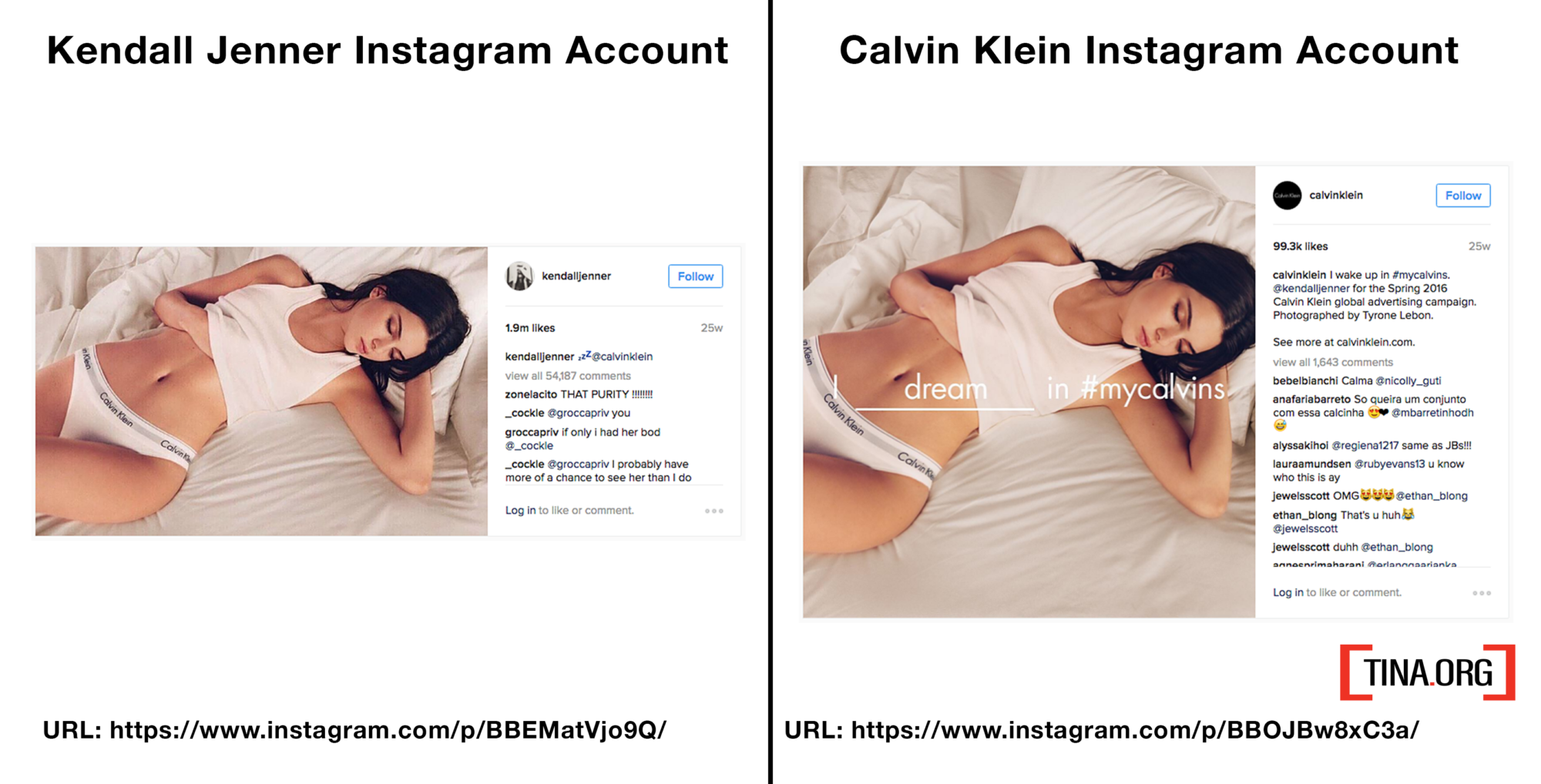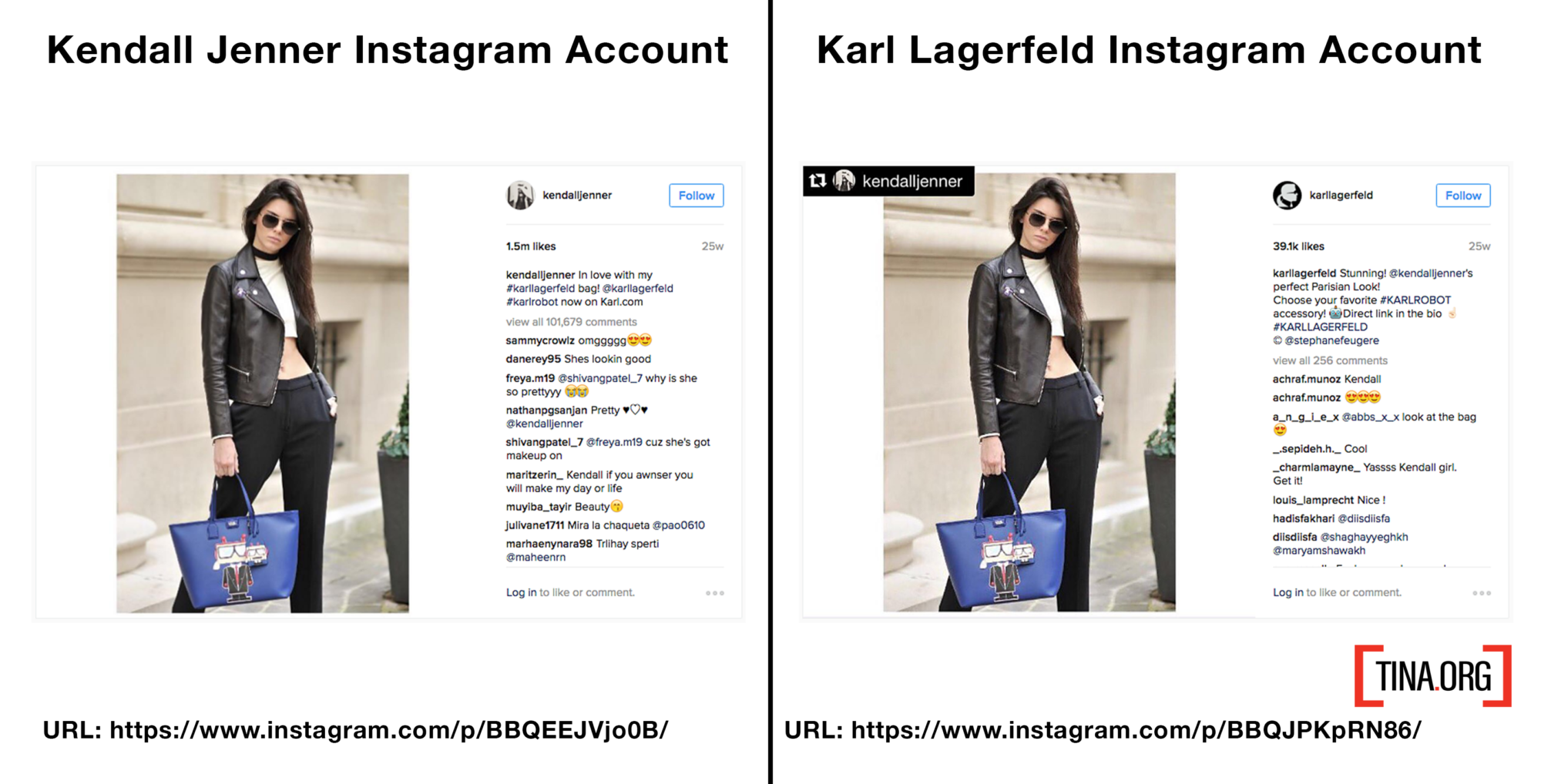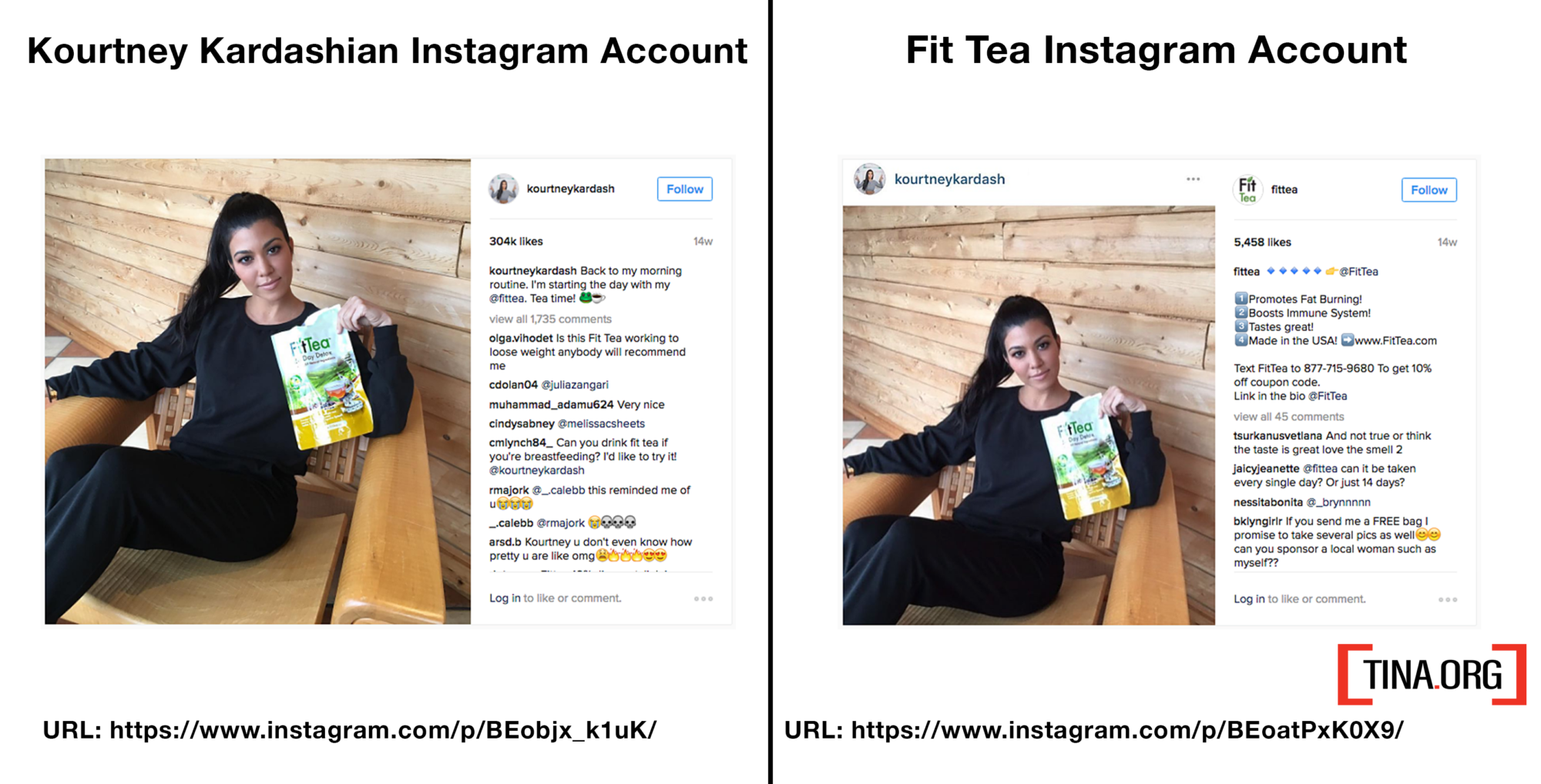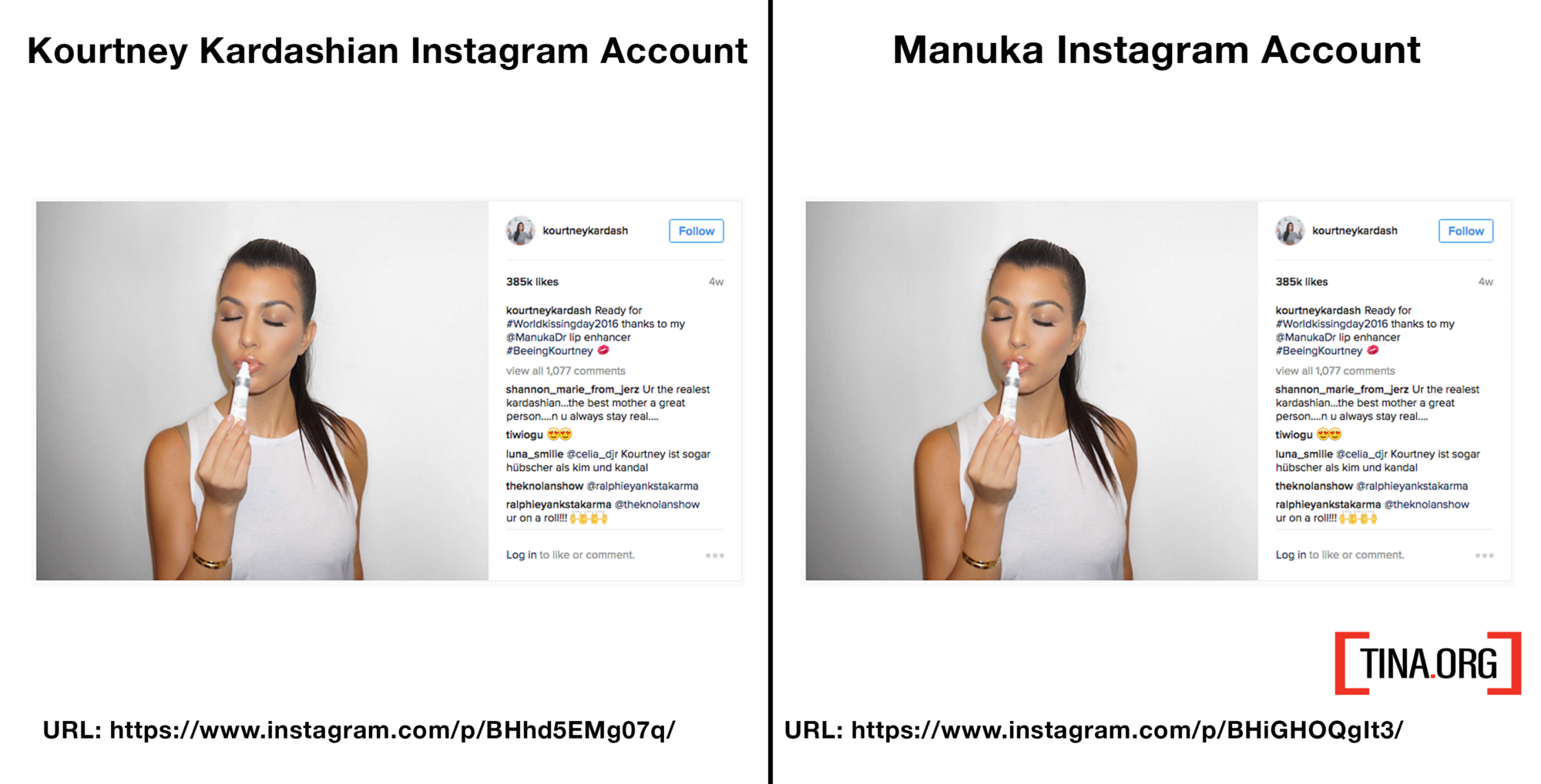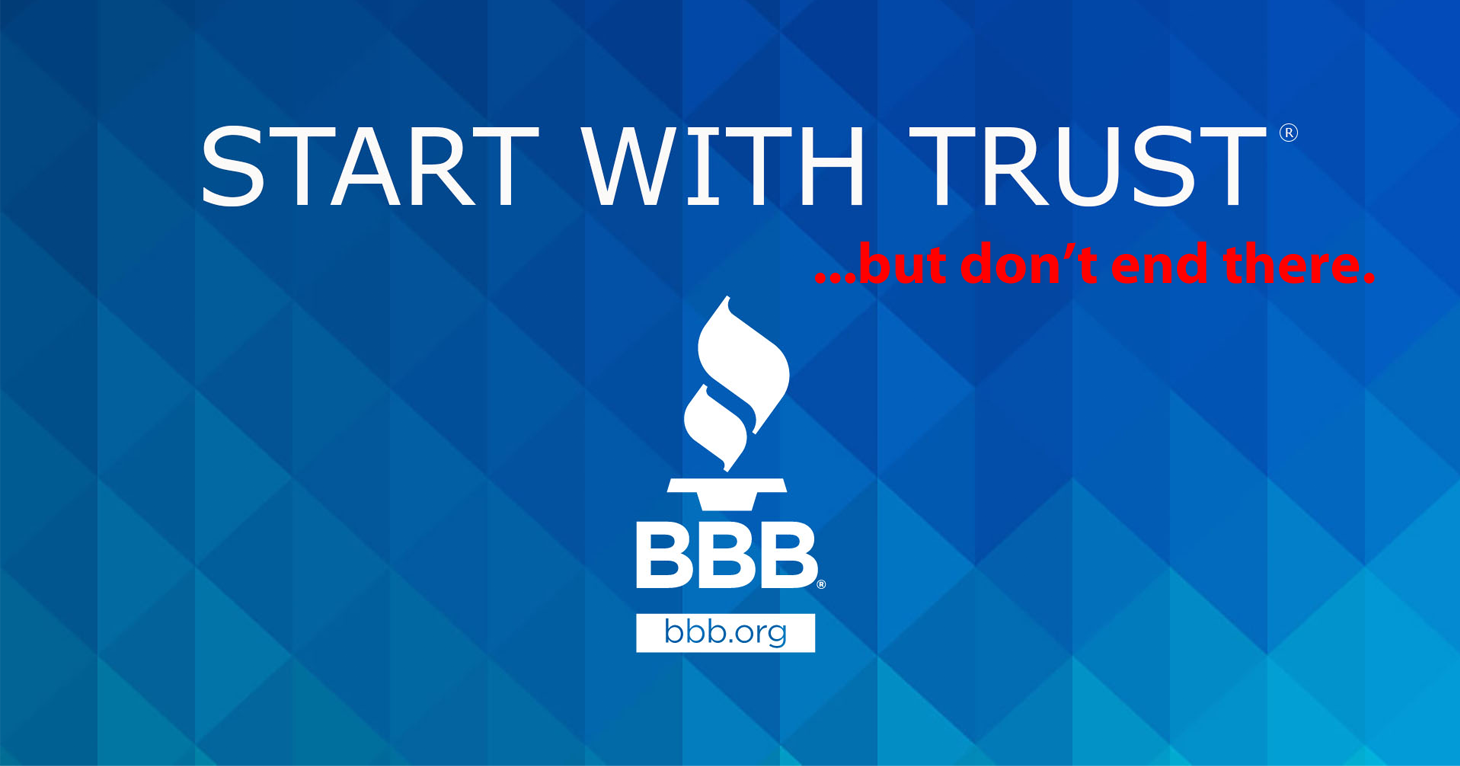
Coronavirus Spawns Class-Action Lawsuits as Consumers Seek Refunds
The pandemic has also triggered lawsuits over privacy issues with some video conferencing apps, and more.
TINA.org takes famous family's deceptive social media endorsements to the FTC.
|
The Kardashian social media machine is a force unto itself. Sisters Kim, Kourtney and Khloe, along with half-sisters Kendall and Kylie Jenner, all of whom star in the popular reality TV series “Keeping Up with the Kardashians,” churn out countless sponsored social media posts for which they have been paid to create and publish. On Instagram, where the five women combine for more than 300 million followers, these paid-for posts reach masses of consumers.
But while Kim and company have cashed in on their prodigious social media followings — touting everything from Puma to Calvin Klein to Fit Tea to JetSmarter private charter jets — a TINA.org investigation has compiled more than 100 Instagram posts by the celebrities that violate FTC endorsement guidelines because they fail to communicate that they are paid ads.
On Aug. 17, TINA.org sent a letter to the Kardashian/Jenner family alerting them about the deceptive marketing campaigns and to more than two dozen companies whose products the family members deceptively promote on Instagram. TINA.org notified the family that, if the illegal posts were not remedied by Aug. 24, it would file a complaint with the FTC.
When that deadline expired, only about 20 percent of posts had been corrected with the addition of #ad at the beginning of the post. For example, Kim published this Instagram post on August 22 starting with #ad. The post promotes Sugar Bear Hair, one of the companies cited in TINA.org’s letter. Kim has also added #ad to a June 20 post for Sugar Bear Hair that previously lacked disclosure. Kylie and Khloe also appended the hashtag to at least one Sugar Bear Hair post on their respective Instagram pages. However, the majority of TINA.org’s original sampling remained unchanged. Moreover, TINA.org has produced an additional 21 sponsored posts that lack proper disclosure. As a result, on Aug. 25, TINA.org filed a deceptive advertising complaint with the FTC.
“When it comes to sponsored social media posts, the law is clear – unless it’s self-evident that an Instagram post is an advertisement, a clear and prominent disclosure is required so that consumers understand that what they are viewing is an ad,” said TINA.org Executive Director Bonnie Patten. “The Kardashian/Jenner family and the companies that have a commercial relationship with them have ignored this law for far too long, and it’s time that they were held accountable.”
Federal endorsement guidelines
The FTC is very clear in its endorsement guidelines, which were updated in May 2015 to address social media advertising disclosures, that if someone is paid to promote a product or has a material connection with a company, they must disclose that relationship since it could affect a consumer’s opinion about the product. For space-cramped platforms such as Twitter or Instagram, the guidelines state that starting a post with AD: or #ad would likely be effective.
Yet, Kardashian/Jenner family members continually fail to clearly and conspicuously disclose their relationship with the companies they promote in their Instagram posts as is required by federal law.
The Instagram posts
Of the original sampling of deceptive posts catalogued by TINA.org, Kylie had the most problem posts out of the five women with 69. Kim took second with 24. Puma, with which Kylie has an endorsement deal, and Fit Tea tied for the most posts across all companies in TINA.org’s initial sampling with 14 apiece. Paid posts promoting Fit Tea appeared on Kylie, Khloe, and Kourtney’s Instagram pages.
Here are some of the posts:
Michael Kump, the Kardashian/Jenner family attorney, said in a statement to TINA.org that the family is working to clarify the social media posts that are problematic.
The Kardashians and Jenners are greatly appreciative of their fans and take their responsibility seriously to be as open and transparent in their interactions with their fans and the public. We appreciate TINA bringing these matters to our attention and are working swiftly and diligently with our brand partners and TINA to update any past social media posts that do not clearly reflect a commercial relationship, where one exists.
Insta-money
It has been widely reported that sponsored social media posts earn celebrities with robust followings — those in the Kardashian/Jenner clan included — tens to hundreds of thousands of dollars per post.
RELATED: Ad or Not? Coke and Selena Gomez
But the Kardashian and Jenner women have also used Instagram to promote their own various projects and products. Kim has tapped into her 80-million-strong following to hawk Kim Kardashian: Hollywood, a mobile game that has generated $160 million in revenue since its June 2014 launch, according to Forbes; Kylie has an additional Instagram page dedicated solely to plugging her makeup company, Kylie’s Cosmetics; and Kendall has furthered her professional modeling career by sharing magazine covers on which she is featured with her more than 60 million Insta-followers.
A TwitPic and an FDA warning
Kim has been in the news before for dubious product-related social media posts. Take, for example, this May 2013 TwitPic that she fired off, sans disclosure, to the nearly 18 million Twitter followers she had at the time. The photo and caption prompted some media outlets to wonder whether she was paid to post.
The socialite grabbed headlines again two years later when she went on Instagram to tout a morning sickness drug called Diclegis but failed to mention any of the drug’s potential side effects. In the caption, Kim stated that she was “partnering” with the drug’s maker, Duchesnay. But the FDA warned Duchesnay Executive Vice President Eric Gervais:
The social media post is false or misleading in that it presents efficacy claims for DICLEGIS, but fails to communicate any risk information associated with its use…
Kim ended up reposting the Instagram post with information on potential side effects and directions for use. The new caption began with hashtag #CorrectiveAd.
FTC crackdown looming?
The FTC has signaled it is going to step up efforts to police social media endorsements. In March, the agency took action against Lord & Taylor for a failure to ensure that Instagram posts aimed at selling a certain dress were properly disclosed as ads. The department store chain had paid 50 fashion influencers between $1,000 and $4,000 each to flood Instagram with photos of themselves in the dress without requiring disclosure of the compensation. The posts reached more than 11 million users and the dress quickly sold out.
TINA.org reached out to Sugar Bear Hair, Fit Tea, Puma, and Calvin Klein for comment. Check back for updates.
Click to see more on TINA.org’s coverage of sponsored content.
UPDATE 9/2/16: Since TINA.org notified the Kardashians about the posts, about 58 percent of the 130 examples catalogued by TINA.org have been changed or deleted. About one-third have been edited to include #ad at the start of the post.
The pandemic has also triggered lawsuits over privacy issues with some video conferencing apps, and more.
Why the FTC should consider virtual influencers as it reviews its Endorsement Guides.
Researching a company shouldn’t be one-stop shopping.
